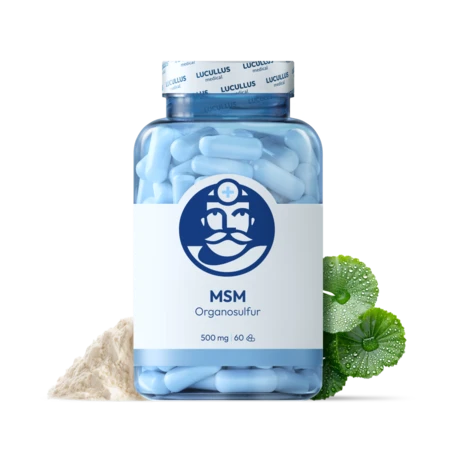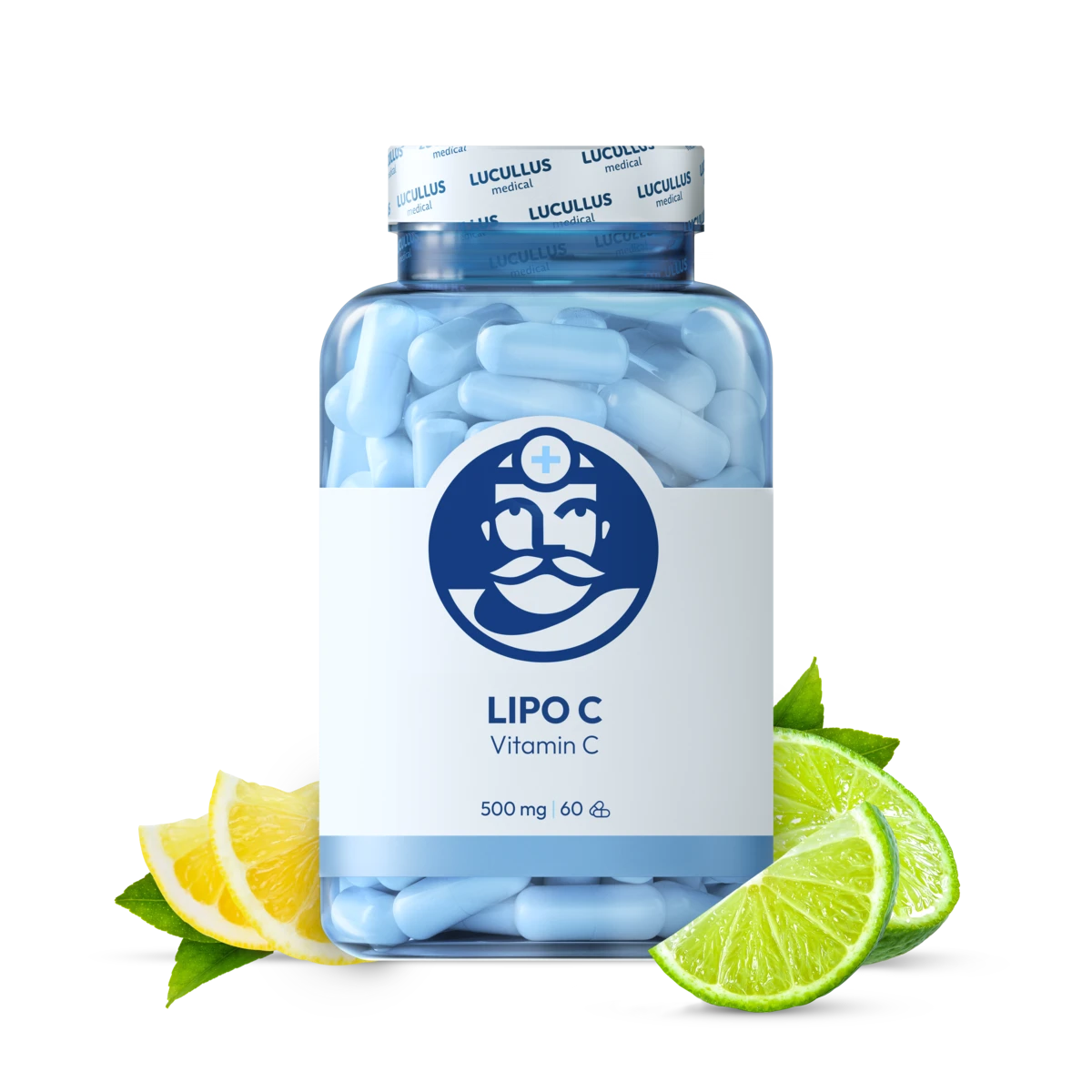
Inovatívny LIPO C (Lipozomálny vitamín C)
Vitamín C (kyselina askorbová) je už dlho uznávaný a schopný zlepšiť imunitnú funkciu a znížiť závažnosť a trvanie prechladnutia a chrípky . Že vitamín C je nevyhnutný pre optimálne fungovanie imunitného systému a celkové zdravie je všeobecne známe. Potvrdzuje to fakt, že vitamín C je jedným z najpopulárnejších a najpoužívanejších doplnkov stravy na celom svete. Práve nízky obsah tohto vitamínu v spracovaných potravinách si vyžaduje jeho pravidelné dopĺňanie. Okrem posilňovania imunity a skracovania trvania prechladnutia je dôležitá úloha pri hojení ran, zlepšovaní funkcií mozgu a podpory pevnosti kostí.

Ashwagandha - krotiteľ kortizolu
Určite poznáte pocit, keď sa cítite v ohrození. Vybehol na vás spoza plota veľký pes, na porade sa na vás oboril šéf a zniesol vás pod zem, alebo je zajtra splátka hypotéky a vy ste práve dostali padáka z práce. V takýchto prípadoch telo produkuje steroidný hormón - kortizol. Ten nás už chráni v nebezpečných situáciách a telo pripravuje pozície "bojuj, alebo uteč". Srdce sa rozpumpuje, krv sa nahrnie do dôležitých orgánov, hladina bolesti potláča... Poviete si - najužitočnejšia vec pod slnkom!

Cholín a Inozitol
Cholín a Inozitol - dve slovká, ktoré ste pravdepodobne ešte nepočuli. Vo svetle doplnkov však ide o dôležité výživové doplnky skupiny B, ktoré však vlastne sú vitamínmi. Ide o látky, vitamíny veľmi podobné, ktoré podporujú funkciu pečene a látkovú premenu lipidov - čiže metabolizmus tukov. Cholín je vo vode rozpustný vitamín. Vyskytuje sa v Lecitíne, ktorý je bežný v mnohých rastlinných a živočíšnych tkanivách. Cholín je prekurzor pre neurotransmiter (teda prenášač) acetylcholín - ten sa podieľa na mnohých funkciách pamäti a svalovej činnosti.

Do we need the 'sunshine' vitamin D3 only in winter?
When you feel the sun's rays on your skin, know that your body is creating one of the most important vitamins - D3, which was discovered thanks to centuries of research. The discovery of vitamin D3 became one of the most significant medical achievements of the 20th century, saving millions of lives: It was the year 1650 and in the streets of London, doctors noticed that more and more children were suffering from a strange disease called rickets (their bones were weak and brittle, legs deformed, growth slowed). It wasn't until 1919 that Dr. Huldschinsky exposed children with rickets to ultraviolet light and their bones began to heal! Three years later, biochemist McCollum discovered a substance that prevented rickets and called it vitamin D. Gradually, the existence of the most important form of vitamin D3 (cholecalciferol) was discovered.

B10 ... for your younger self
Excessive hair loss, slowed growth, or premature graying can have various causes, with diet playing a major role. Para-aminobenzoic acid (PABA), also known as vitamin B10 (although it is not officially a vitamin), is among the significant nutrients that support hair health, skin, and overall vitality of the body. Additionally, it can influence the aging process. Despite its beneficial effects, it is less known today, although in the past it was considered almost a miraculous means of maintaining youth. In the 1950s, scientists studied PABA for its potential in combating degenerative diseases and recorded cases where graying was slowed down.

Omega 3, precious message of the sea
Do you long to wake up with ease in the morning, look fresher, not feel joint pain, have more energy, be able to focus, and feel better in your body? We could find the solution from fishermen who got up earlier than the sun each morning, went out to the sea, and greeted the new day with a smile. These were men who never knew the doctor, had sharp minds even in old age, their hands still firmly held the fishing nets and they lived functional longevity, often working into their 90s. The fishermen's treasure was exactly fish oil, which works similarly to a lubricant for our body: it helps the heart pump blood, keeps the mind fresh, and joints flexible, without it, the joints would be like an old creaking ship. The message that the sea gives us what we need was conveyed to future generations because some gifts of health are too precious to keep to oneself.






























